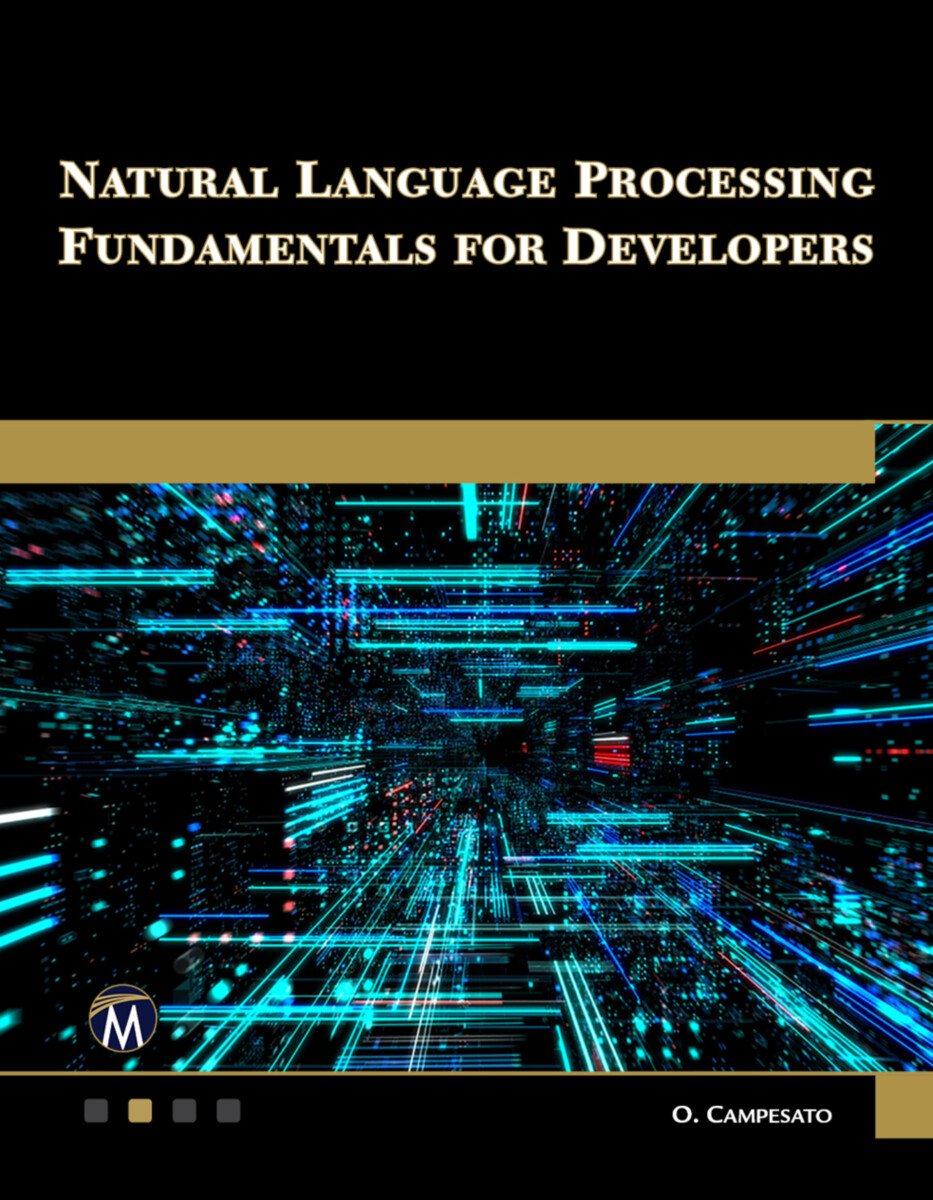Natural Language Processing Fundamentals for Developers
- Publisher
Mercury Learning and Information - Published
29th June 2021 - ISBN 9781683926573
- Language English
- Pages 364 pp.
- Size 7" x 9"
E-books are now distributed via VitalSource
VitalSource offer a more seamless way to access the ebook, and add some great new features including text-to-voice. You own your ebook for life, it is simply hosted on the vendor website, working much like Kindle and Nook. Click here to see more detailed information on this process.
- Publisher
Mercury Learning and Information - Published
14th June 2021 - ISBN 9781683926559
- Language English
- Pages 364 pp.
- Size 7" x 9"
Library E-Books
We are signed up with aggregators who resell networkable e-book editions of our titles to academic libraries. These editions, priced at par with simultaneous hardcover editions of our titles, are not available direct from Stylus.
These aggregators offer a variety of plans to libraries, such as simultaneous access by multiple library patrons, and access to portions of titles at a fraction of list price under what is commonly referred to as a "patron-driven demand" model.
- Publisher
Mercury Learning and Information - Published
14th June 2021 - ISBN 9781683926566
- Language English
- Pages 364 pp.
- Size 7" x 9"
This book is for developers who are looking for an overview of basic concepts in Natural Language Processing. It casts a wide net of techniques to help developers who have a range of technical backgrounds. Numerous code samples and listings are included to support myriad topics. The first chapter shows you various details of managing data that are relevant for NLP. The next pair of chapters contain NLP concepts, followed by another pair of chapters with Python code samples to illustrate those NLP concepts. Chapter 6 explores applications, e.g., sentiment analysis, recommender systems, COVID-19 analysis, spam detection, and a short discussion regarding chatbots. The final chapter presents the Transformer architecture, BERT-based models, and the GPT family of models, all of which were developed during the past three years and considered SOTA (“state of the art”). The appendices contain introductory material (including Python code samples) on regular expressions and probability/statistical concepts. Companion files with source code and figures are included.
FEATURES:
- Covers extensive topics related to natural language processing
- Includes separate appendices on regular expressions and probability/statistics
- Features companion files with source code and figures from the book.
The companion files are available online by emailing the publisher with proof of purchase at info@merclearning.com.
1: Working with Data
2: NLP Concepts (I)
3: NLP Concepts (II)
4. Algorithms and Toolkits (I)
5. Algorithms and Toolkits (II)
6: NLP Applications
7: Transformer, BERT, and GPT
Appendices:
A: Introduction to Regular Expressions
B: Introduction to Probability and Statistics
Oswald Campesato
Oswald Campesato specializes in Deep Learning, Python, Data Science, and generative AI. He is the author/co-author of over forty-five books including Google Gemini for Python, Large Language Models, and GPT-4 for Developers (all Mercury Learning).


